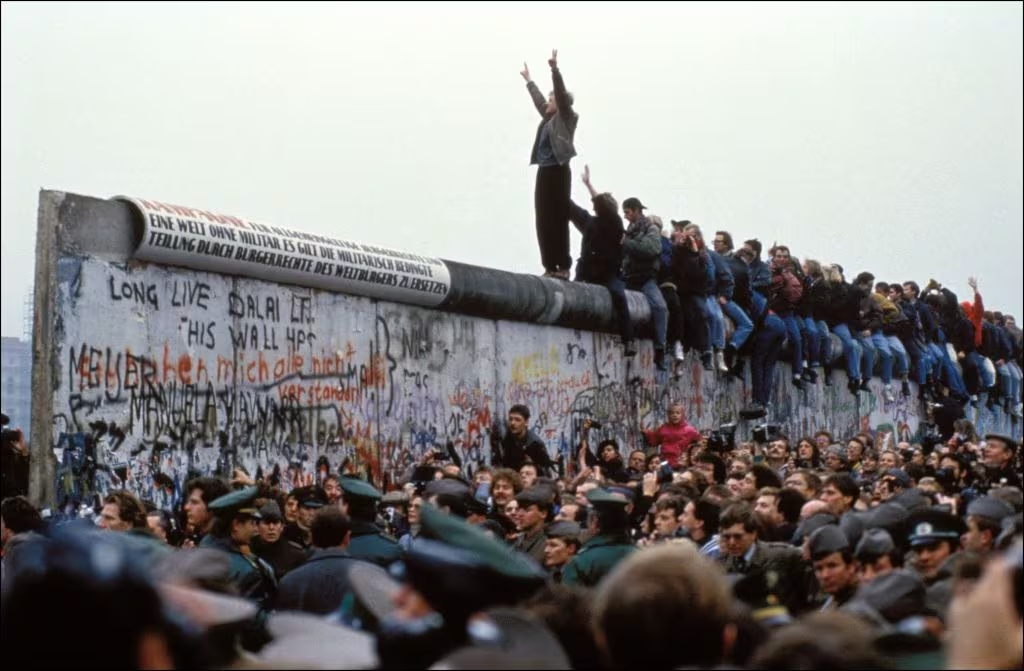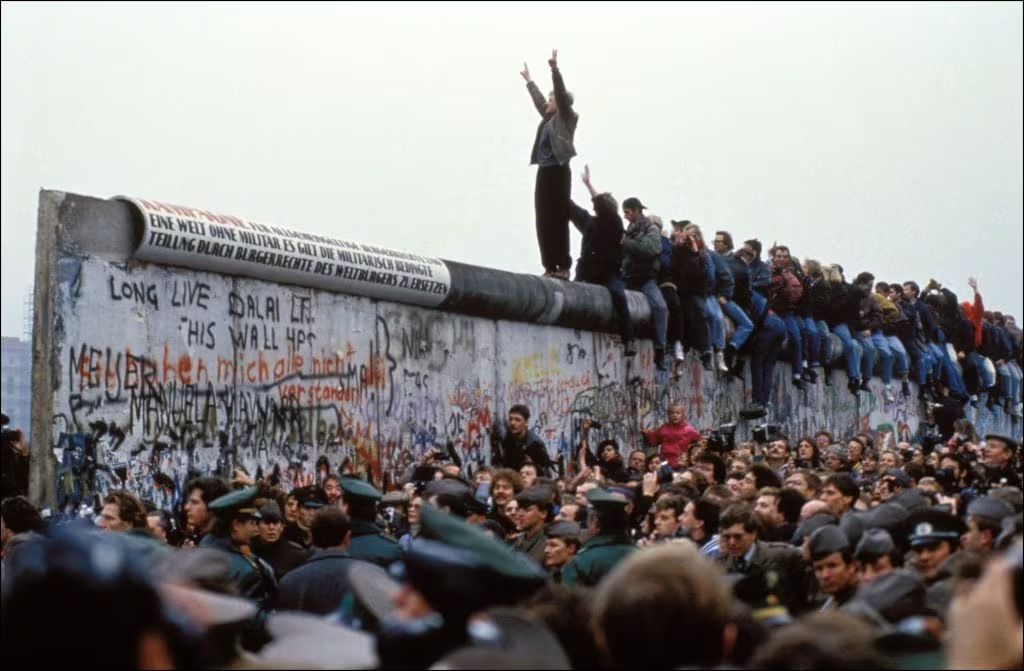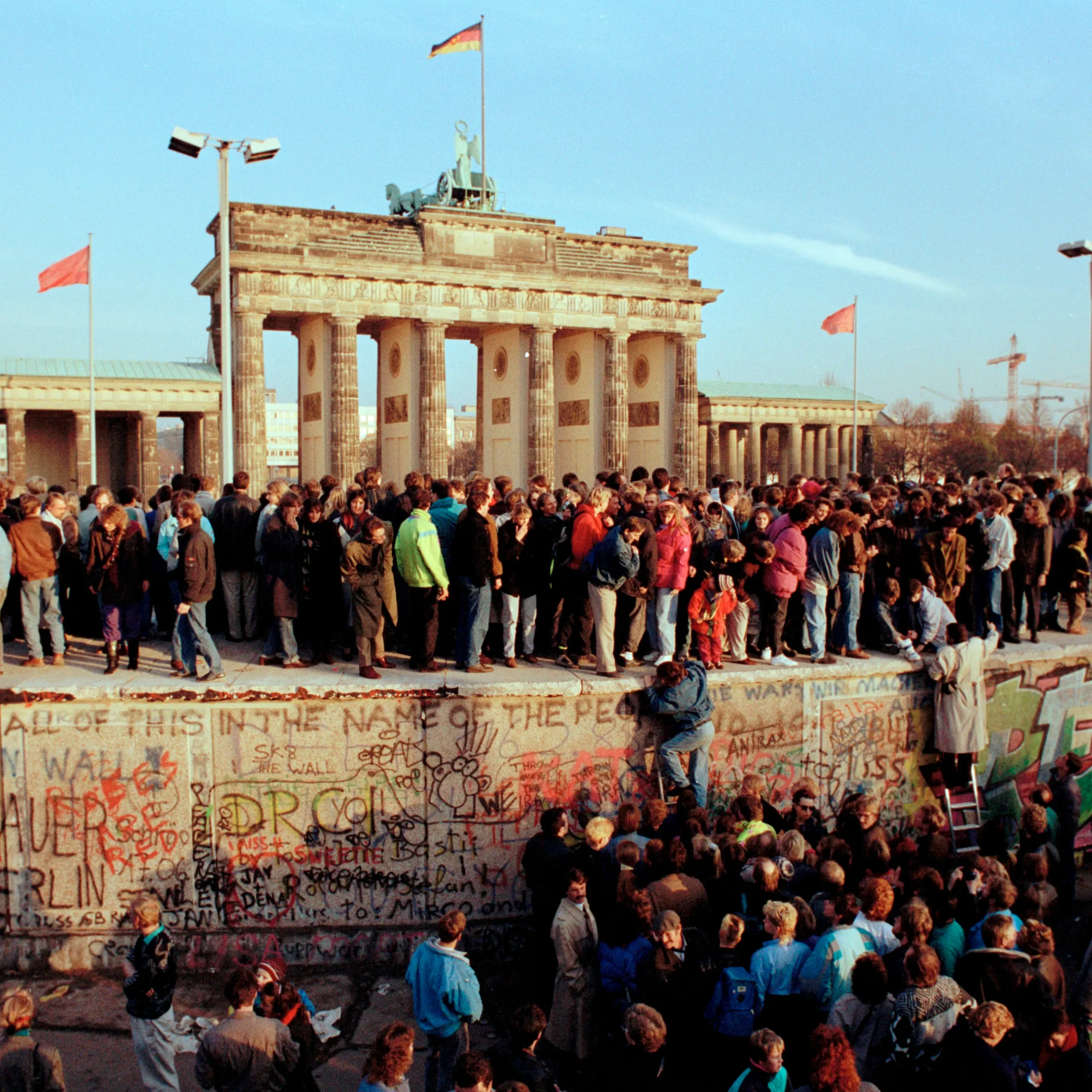
The collapse of communism and the effect on the Europe of today and tomorrow.
On 9 November 1989, the Berlin Wall fell, marking the beginning of the process of dissolution of the Soviet Union and the progressive liberation from communism of many states that today are faithfully part of the European Union and NATO.

The Wall, which was built to separate the Franco-Anglo-American part of the German capital from the Soviet one, became over time the concrete symbol of a much more important border, the “Iron Curtain” which separated Western Europe from Eastern Europe under Soviet control or strongly affiliated communist parties.
It is estimated that around 200 people were killed by the East German military police while trying to cross the wall to reach West Berlin, and the need to find themselves in “Free Berlin” became such a transversal element as to stimulate films, books, and songs from every part of the world.
But what were the concrete effects of that fall?
Quickly said: first of all the reunification of Germany, finalized in early October 1990 after months of negotiations, involving a process of strong incentives to revive the Eastern German economy while avoiding the depopulation of the areas occupied by the Soviets; even before that, the communist regime fell in Hungary, which was the first to open the borders allowing the passage of citizens between Hungary and Austria; Czechoslovakia first freed itself from the communist regime of Gustáv Husák and then started a process for the establishment of two republics, one for the Czech population and one for the Slovak population; Poland and Romania transformed from regimes into democracies, led respectively by the conservative Solidarność trade union in Poland and the National Salvation Front in Romania.
Today, in addition to East Germany as part of Germany, 9 ex-Soviet countries are members of the European Union, to which can be added the countries resulting from the breakup of Yugoslavia, namely Croatia and Slovenia. An important legacy that constitutes almost half of the member states and is the greatest demonstration of the failure of the communist ideology and regime.
At the economic level, in fact, despite the strong growth experienced by the various countries that have entered the EU, the per capita income level remains low: excluding the capital areas, in fact, all the regions that were under the Soviet regime have all today a GDP per capita lower than the European average, including the German regions.
If the economic data, therefore, point to the need for a further step, the political one is quite unambiguous: in Poland, the various right-wing parties have reached two-thirds of the consensus (35% for PiS – ECR and 31% for PO – PPE); in Hungary Orbán (Fidesz – NI, ex-PPE) won the elections with an absolute majority of votes; in the Czech Republic the only left-wing force is the Piráti (Greens/EFA) with 4 seats out of 200, the rest are either centrist (ANO 2011 – RE or STAN – EPP) or center-right (ODS – ECR, KDU- ČSL – PPE, SPD – ID, TOP 09 – PPE); in Romania Klaus Iohannis (PNL – EPP) was re-elected President with 66% in the run-off; in Latvia there is a center-right government comprising JV (EPP), LZP (Greens/EFA) and NA (ECR); in Lithuania the presidential run-off saw two conservative and liberal candidates facing each other.

Apart from the complex situations of Slovakia (where the Social Democrats won again) and Estonia, with governments of broad coalition, the ex-Soviet countries and in particular the well-known “Visegrad Bloc” are among the most faithful electoral basins of the European right, as shown by the high percentages of the CDU (PPE) and AfD (ID) in the Eastern states of Germany.
The process triggered by the fall of the Wall gave impetus to the revenge of conservative and liberal ideas, in defense of the Christian roots against the atheistic nihilism advocated by communist ideology, in defense of homelands and nations, in defense of history and a culture made of Freedom and Prosperity.
The freedom of Eastern Europe is the basis of the Europe of Peoples and the West and on this day we should remember this, also starting to defend ourselves from the forces that threaten us today.
Today as always against any dictatorship, for a Europe that is a bastion of freedom.
![]()



 Subscribe
Subscribe